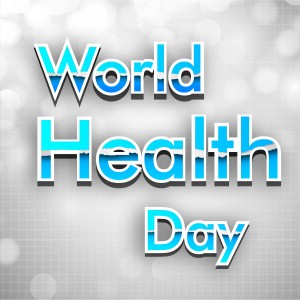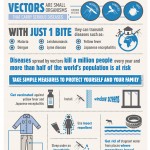
Held each April 7th, World Health Day is a campaign globally recognized and sponsored by the 193 World Health Organization (WHO) country members.
What is World Health Day?
World Health Day isn’t all about hand-washing and healthy eating. It is a day observed worldwide by government and non-government health organizations focusing on promoting healthier living habits that increase the life expectancy of people around the world. There are organized activities, pledges and support plans such as conferences for health workers, briefings for local politicians, informational displays for children and young people, public marches and demonstrations, as well as free or easy access to medical tests. Debates on related topics, art exhibitions, essay writing, competitions and award ceremonies also take place on World Health Day. This special day has become a collective action aimed at globally protecting human health and well-being.
World Health Day Annual Themes
Each year since 1995, an annual theme is selected that highlights the years a priority area of concern. One of its most effective World Health day themes was Global Polio Eradication in 1995. Thanks to that year’s efforts, the level of polio awareness has risen considerably and now in many parts of the world people are freed from this dreaded disease.
Other important themes adopted by WHO have been Emerging Infectious Diseases in 1997; Safe Motherhood in 1998; Move for Health in 2002; International Health Security in 2007; Healthy Heart Beat, Healthy Blood Pressure in 2013. This year’s theme for World Health Day 2014 is vector-borne diseases.
Small Creatures + Small Bites = a BIG THREAT
 Vectors are small organisms such as mosquitoes, sandflies, bugs, ticks and freshwater snails that can carry disease from person to person and place to place. They are most commonly found in tropical areas and places where access to safe drinking-water and sanitation systems may be problematic.
Vectors are small organisms such as mosquitoes, sandflies, bugs, ticks and freshwater snails that can carry disease from person to person and place to place. They are most commonly found in tropical areas and places where access to safe drinking-water and sanitation systems may be problematic.
Vectors put human health at risk and are responsible for diseases such as malaria – the most deadly vector-borne disease that causes an estimated 660 000 deaths annually worldwide. Other vector-borne serious diseases include dengue fever, lymphatic filariasis, chikungunya, Japanese encephalitis and yellow fever.
Dengue is the fastest growing vector-borne disease with a 30-fold increase over the last 50 years. Dengue is now appearing in countries where it was previously unknown. Today’s world with globalization of trade, international travel and environmental challenges such as climate change and urbanization has contributed significantly to the increase in vector-borne disease.
A specific mosquito species in the Americas puts 21 countries at risk for malaria. With the exception of Canada and mainland Chile, almost the entire population of 35 countries lives with the mosquito that is capable of transmitting dengue, chikungunya, and yellow fever viruses.
WHO is aiming for the following outcomes with their 2014:
- Families living in areas where diseases are transmitted by vectors will learn how to better protect themselves
- Travelers will be more aware on how to protect themselves when travelling to countries where vector-borne disease poses a health threat
- Ministries of health put in place measures to improve the protection of their populations in those countries where vector-borne diseases are a public health problem
- Authorities work with environmental and relevant authorities locally and in neighboring countries to improve integrated surveillance of vectors and to take measures to prevent their proliferation
World Health Day @ Work
Earning a living doesn’t need to cost you your health. There are plenty of things you can do to make sure you stay healthy and happy at work.
Here are some ideas:
- Stay germ free! Wash your hands. Thousands of germs are just waiting to make you sick. Get out the disinfectant and clean your phone, keyboard and anything else that you use frequently. Avoid direct contact with coworkers who are sick.
- Eat breakfast! It has been proven that people who eat breakfast are healthier.
- Think exercise! If you take public transportation, get off one stop early, take the stairs instead of the elevator, park further in the lot.
- Drink Water! Staying hydrated keeps you energized and prevents you from thinking you’re hungry.
- Don’t skip lunch! Eating a healthy lunch is an important part of a balanced diet.
 Plan ahead and keep healthy snacks handy! Dark chocolate (yes chocolate!), almonds, raisins and fresh fruit are not only delicious but also boost your immune system.
Plan ahead and keep healthy snacks handy! Dark chocolate (yes chocolate!), almonds, raisins and fresh fruit are not only delicious but also boost your immune system.- Be aware of mental fatigue! Keep beautiful and personal objects in sight – they have a way of relaxing frayed nerves.
- Don’t ignore stress! Symptoms include a pounding heart or palpitations, a dry mouth, headaches, odd aches and pains.
- Avoid overworked muscles and take regular breaks! Repetitive strain injury (RSI) is more likely to occur if you spend long periods without a break. Sit properly and use a speakerphone, a shoulder cradle, or use a headset at work when you’re on the phone.
- Get up and move! Frequent short breaks are better for your back than fewer long ones. Be fidgety, take a walk, visit a coworker rather than phone, use the photocopier, get some sunlight.
The most important way to stay healthy at work begins with self-awareness. Know yourself, your limits, when to take breaks and when to take a vacation. Get plenty of exercise – it helps you physically and mentally – both at work and at home.
World Health Day may just be one day, but it is a day that needs to remind us of the importance of health as something that needs to be a part of everything we do.

